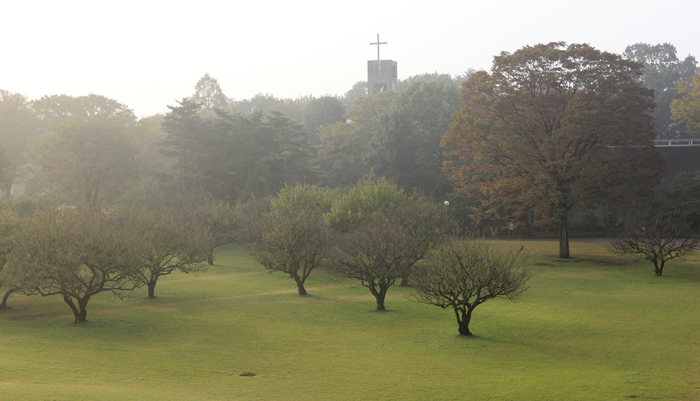Supporting Refugee Students Beyond the Syrian Scholars Initiative

The Syrian Scholars Initiative (SSI), a scholarship program to support Syrian students impacted by the civil war at ICU, was launched by ICU, JICUF, and the Japan Association for Refugees (JAR) in 2017. ICU was one of the first universities in Japan to recruit refugee students directly from overseas. Considered a pioneer in education pathways in Japan, JICUF has been working with JAR and later with Pathways Japan to encourage more higher education institutions in Japan and the Asia Pacific region to receive more refugee students. JICUF and PJ are also members of the Global Task Force on Third Country Education Pathways and contribute to the global effort to expand education pathways.
To date, seven Syrian students have been recruited through SSI. The first two students who matriculated in 2018 graduated this June, and the seventh student matriculated this September. Instead of continuing to recruit students through SSI next year, JICUF has decided to support refugee students through a two-pronged approach.
First, JICUF will provide funding for the Japanese Language School Program (JLSP) administered by Pathways Japan. This program precedes SSI and was launched in 2016. Since 2017, Syrian students have been admitted to Japanese language schools with a full-tuition scholarship to study Japanese intensively for two years. The majority of students who have completed the program have gone on to universities in Japan. A major funder for the program pulled out in 2021, and JICUF decided to step in to help Pathways Japan continue the program. This year, JICUF will provide $50,000 to cover essential costs such as airfare, orientation, and partial stipend for the first six months of the program. PJ plans to recruit a total of ten to twelve Syrian and Afghan refugee students for admission in spring 2023.
Second, JICUF will work with ICU to create a new scholarship for refugee and displaced students at ICU to replace SSI. We hope to support refugee and displaced students of any nationality who have completed the JLSP. Details have yet to be determined.
JICUF decided to make these changes based on the lessons learned from SSI. One such lesson is that the admissions requirements for Japanese universities prevent the most vulnerable students from applying. Obtaining a high score in English proficiency tests such as TOEFL or IELTS and maintaining a high GPA in high school are often not possible for students who have had their education disrupted, moved to another country, and resumed their education in a completely new language. This has meant that only a handful of students qualified for the scholarship each year.
The second lesson is that many international students, and not only refugee students, struggle to learn Japanese. Even with ICU’s highly reputed Japanese Language Programs (JLP), few students reach the level of proficiency required to find employment in Japan.
For these reasons, we have decided to support the JLSP as a bridging program to prepare refugee students for higher education in Japan. We believe that receiving rigorous Japanese language education and having the chance to acclimate to life in Japan prior to entering a higher education institution would help set them up for long-term success.
We are excited to embark on this new chapter, and ask for your continued support for refugee/displaced students.



